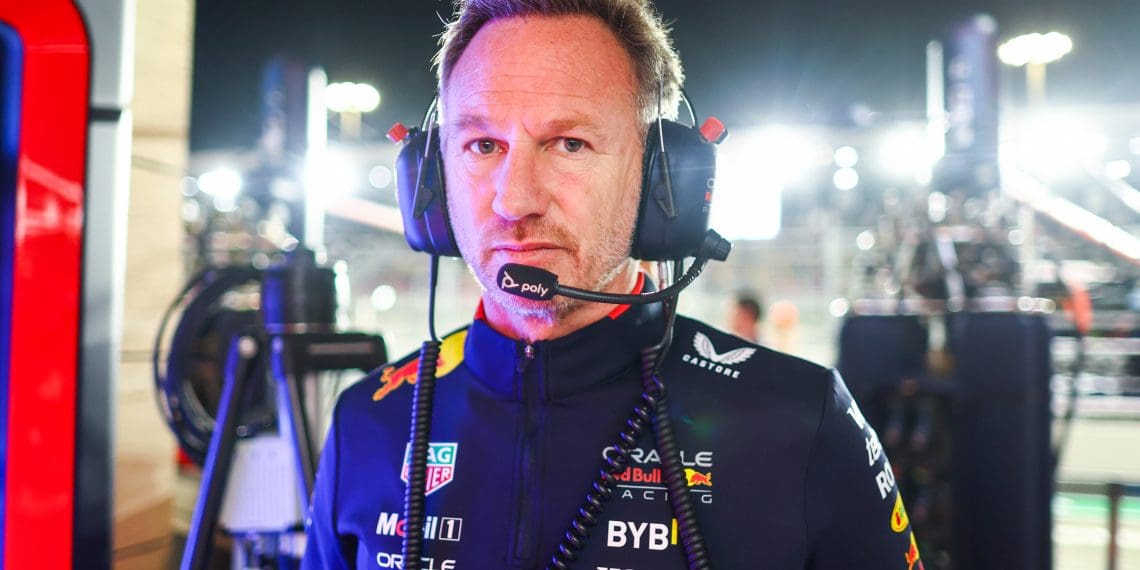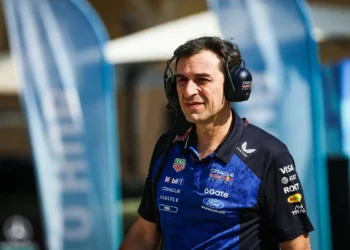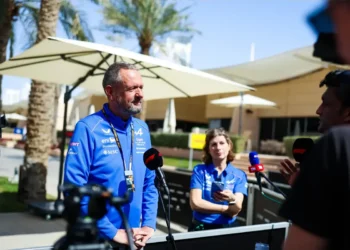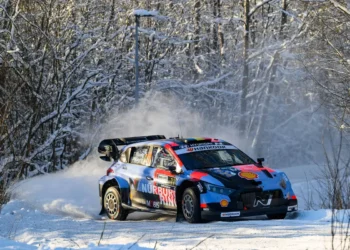As Formula 1’s 2026 engine revolution looms, Honda faces mounting challenges in developing a competitive hybrid power unit. But Red Bull team boss Christian Horner remains confident that despite a rocky restart, the Japanese manufacturer will be a force to reckon with alongside Aston Martin.
Honda, which initially stepped back from F1 after 2021, is now preparing for a full-fledged return in 2026 as Aston Martin’s exclusive power unit partner. Yet, Honda Racing Corporation (HRC) president Koji Watanabe has openly admitted that the company is struggling to meet the demands of F1’s next-generation power units.
💬 Honda’s Koji Watanabe:
“Everything is very difficult, but we try our best.”
But despite Honda’s internal concerns, Horner remains convinced that the manufacturer’s history of resilience and innovation will help it bounce back in time for the new regulations.
Horner’s Take: Honda’s Setback Won’t Stop Its 2026 Ambitions
Red Bull and Honda joined forces in 2018, bringing an end to the team’s Renault engine struggles and culminating in Max Verstappen’s maiden championship in 2021. Honda then made the shock decision to step away, leaving Red Bull to take over full control of its power units.
This led to the creation of Red Bull Powertrains, now in partnership with Ford to develop an all-new engine for 2026.
With Honda restarting its F1 project after a brief hiatus, Horner acknowledged the time lost but backed the Japanese brand to recover.
💬 Christian Horner on Honda’s 2026 challenge:
“It is a big challenge. I mean, [Honda] disbanded their project and then restarted it again. They may well have lost a little bit of time through that, but they’re a very capable company and they’ve got great strength.”
“I am sure they’ll have a competitive power unit come 2026.”
2026 Powertrain Battles: The Big Players on the Grid
The 2026 regulations will bring drastic changes to F1 power units, including:
🔹 Sustainable fuels replacing conventional fuel.
🔹 No more MGU-H, shifting power balance between internal combustion and electrical energy.
🔹 Higher reliance on battery power, making hybrid efficiency crucial.
Honda’s rivals in this new era will include a mix of established and new players:
✅ Red Bull-Ford Powertrains – Red Bull’s bold venture into self-produced engines, backed by Ford’s hybrid expertise.
✅ Mercedes & Ferrari – The two longtime powerhouses looking to maintain dominance.
✅ Audi – Set for its F1 debut as an OEM, taking over Sauber’s entry.
✅ General Motors/Cadillac – Preparing a works engine project for its 2026 entry.
With Aston Martin banking on Honda, the battle for power unit supremacy will be one of the most intriguing storylines leading into 2026.
The Red Bull-Ford Challenge: Can They Deliver a Competitive Engine from Scratch?
While Horner is backing Honda, his own Red Bull-Ford project is facing its own major hurdles.
🚨 Building an F1 engine from scratch is an enormous undertaking.
🚨 Red Bull Powertrains is a startup in a highly competitive field.
🚨 The unknown performance levels of rival manufacturers remain a mystery.
💬 Horner on Red Bull’s in-house engine project:
“You always want more time, but it is a big challenge for us—producing our own engine from scratch, a start-up company, but we’re doing well.”
“Of course, you never know what your opponents are doing, it is a big challenge, but for us, it is the right move.”
The Verdict: A High-Stakes Power Struggle in 2026
Honda’s delayed restart might put it at an early disadvantage, but if history has proven anything, it’s that Honda thrives under pressure. Meanwhile, Red Bull-Ford’s untested engine program is a high-risk, high-reward gamble.
The 2026 power unit shake-up could completely reshape the F1 hierarchy. Will Honda’s Aston Martin project rise to dominance? Will Red Bull-Ford emerge as a title-winning force?
With Mercedes, Ferrari, Audi, and GM all in the mix, we’re entering one of the most unpredictable F1 engine eras in history.










